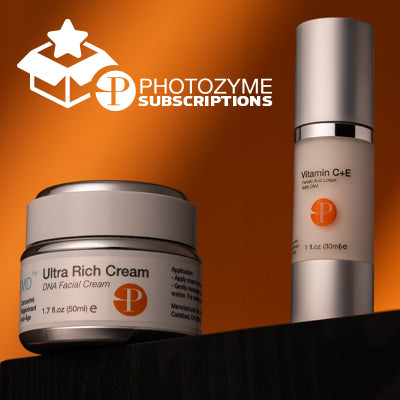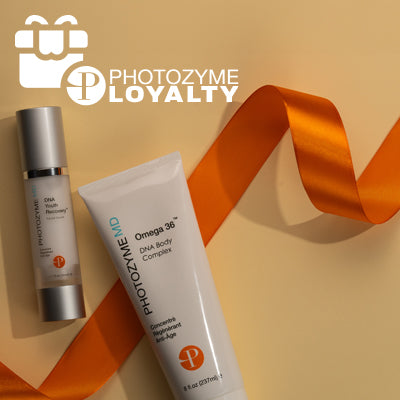Key Takeaways:
- Emollient and Moisturizer: Dimethicone is a type of silicone widely used in skincare for its emollient, moisturizing, and protective properties.
- Suitable for All Skin Types: It is non-comedogenic and suitable for various skin types, including acne-prone and sensitive skin.
- Easy to Remove: Despite common misconceptions, regular cleansing makes dimethicone safe, effective, and easy to remove.
Understanding Dimethicone
Dimethicone, a type of silicone, is one of the most widely used ingredients in skincare. Its unique fluid properties enhance the texture and spreadability of products, contributing to a silky, smooth finish pleasing to the touch. Beyond its sensory benefits, dimethicone serves several functional roles in skincare formulations.
- Softening Agent: Acts as an emollient, helping to soften and soothe the skin, making it excellent for products targeting dry and rough skin textures.
- Moisture Barrier: Forms a protective barrier on the skin's surface, preventing moisture loss and keeping the skin hydrated and plump longer than many natural oils or emollients.
- Non-Comedogenic: Due to its unique molecular structure, it does not clog pores, making it suitable for use in products designed for various skin types, including oily and acne-prone skin.
The Chemical Structure Of Dimethicone
Dimethicone is primarily a silicone-based polymer, more scientifically known as polydimethylsiloxane, abbreviated as PDMS. Its structural base is a repeating unit of silicon and oxygen atoms bonded together, with organic methyl groups (CH3) attached to the silicon. This structure forms a backbone of [-Si(CH3)_2-O-] units. The length of the polymer chain can vary, affecting the dimethicone's viscosity and other properties.
Dimethicone's molecular structure's flexibility and low reactivity are key to its function. The silicone-oxygen backbone is highly flexible, allowing the chains to move freely and slip over each other. This is what gives dimethicone its distinctive, silky, and smooth feel when applied to the skin. It also provides a protective barrier that helps retain moisture without feeling heavy or greasy.
Moreover, the stability of the silicon-oxygen bonds in dimethicone makes it resistant to oxygen, ozone, and ultraviolet light. This stability contributes to the longevity and effectiveness of dimethicone-based products in protecting and conditioning the skin. As a result, this ingredient is particularly valued in formulations targeted at enhancing and maintaining skin health, aligning perfectly with advanced skincare solutions.
How Dimethicone Works In Cosmetic Products
Dimethicone is a silicone-based polymer primarily used in skincare and cosmetic products.
Emollient And Moisturizer
Its main role is to serve as an emollient and moisturizer, helping to smooth and soften the skin. This is achieved by its unique ability to form a protective barrier on the skin's surface. Unlike many other substances that might feel heavy or greasy, dimethicone has a notably lightweight and non-oily feel, making it a preferable choice in many formulations.
Semi-Occlusive Barrier
The barrier formed by dimethicone is semi-occlusive, partially preventing water loss from the skin while allowing it to breathe. This is crucial for maintaining skin hydration without clogging pores or exacerbating acne. Its properties make it especially beneficial in products aimed at dry or irritated skin, as it can provide a soothing effect, reducing redness and irritation.
Enhanced Spreadability
Moreover, dimethicone also enhances product spreadability. This makes applying products evenly across the skin easier and ensures that active ingredients are distributed more uniformly. This is particularly advantageous in color cosmetics, such as foundations and primers, where a smooth, even application is essential. Additionally, it can help temporarily fill in fine lines and wrinkles, giving the skin a more plump and smooth appearance.
Common Uses Of Dimethicone In Beauty And Skincare
Dimethicone is widely utilized in the beauty and skincare industry due to its exceptional properties that aid in improving product performance and enhancing skin feel.
Here are some of the most common uses of dimethicone in skincare and beauty products:
Moisturizer And Hydration Agent
Dimethicone effectively forms a barrier on the skin’s surface, helping to lock in moisture. This makes it a fantastic ingredient in moisturizers, particularly for dry skin, as it can significantly prevent water loss and keep the skin hydrated for longer.
Primer For Makeup
Due to its soothing effects, dimethicone is a popular ingredient in makeup primers. It fills in fine lines and pores, giving the skin a smoother appearance, and helps makeup apply more evenly and last longer.
Conditioning Agent In Hair Care
Dimethicone provides conditioning benefits in hair care products. It coats the hair, providing a sleek, shiny finish, and helps detangle hair strands, reduce frizziness, and protect against environmental damage.
Skin Protectant
Often found in healing ointments and creams, dimethicone can protect mild skin irritations, and chapped skin, and help with damage control. It forms a protective layer over the skin that guards against external irritants and speeds up the healing process.
Cosmetic Formulations
Dimethicone improves product spreadability in cosmetic products, making application smoother. It's a common ingredient in foundations, lotions, and other creamy cosmetics due to its ability to help evenly distribute the product without feeling heavy or greasy on the skin.
Comparing Dimethicone With Other Silicones
Due to its unique properties, Dimethicone is a silicone-based polymer commonly used in skincare products. As a skincare ingredient, it functions as an emollient, providing a soft and smooth texture to the skin. It also forms a protective barrier, which helps to retain moisture and protect the skin from environmental irritants.
However, it must be compared with other silicones to understand its distinctive benefits:
Cyclomethicone
One commonly used silicone in skincare formulations is cyclomethicone. Unlike dimethicone, cyclomethicone is more volatile and evaporates quickly after application. This characteristic makes cyclomethicone a popular choice for products that require a lighter, less greasy feel, such as hair sprays and deodorants. However, due to its stable and non-volatile nature, dimethicone is superior for long-lasting skin protection and moisture retention.
Phenyl Trimethicone
Another variety is phenyl trimethicone, often used in formulations requiring a glossy finish, like lipsticks and highlighters. While phenyl trimethicone offers a more reflective quality, dimethicone provides a more matte finish, making it ideal for daily skincare products that form a breathable barrier without adding shine.
Silicone Elastomer Blends
Regarding skin tolerance, silicone elastomer blends, combinations of silicones with different viscosities, can be engineered to meet specific sensory needs. These blends can mimic dimethicone's spreading and filling properties while aiming to enhance the overall sensory appeal of the product. However, pure dimethicone remains a preferred choice in many therapeutic and protective skin products for consistent efficacy and reliable barrier formation.
How To Identify Dimethicone On Product Labels
When scanning the ingredients list on skincare products, recognizing dimethicone can be straightforward because it is often plainly listed by its common name. However, it can occasionally appear under different nomenclatures.
To ensure you're informed about what's in your skincare, look for names such as:
- Dimethicone
- Polydimethylsiloxane
- Dimethylpolysiloxane
- PDMS
These terms refer to the same silicone-based polymer commonly used in formulations to provide a smooth application and a protective barrier on the skin. By familiarizing yourself with these names, you can make more knowledgeable choices about the products you incorporate into your skincare routine.
Myths And Misconceptions About Dimethicone
Dimethicone, widely used in skincare and hair care formulations, is often surrounded by myths and misconceptions. Here, we clarify some of the most common misunderstandings associated with dimethicone to enable consumers to make more informed choices about their skincare products.
Myth 1: Dimethicone Causes Acne
One prevalent misconception is that dimethicone can clog pores and exacerbate acne. However, dimethicone is non-comedogenic and does not block pores. Its molecular structure is too large to penetrate the skin, allowing it to create a breathable barrier without causing acne flare-ups. Studies have shown that dimethicone can actually be beneficial in skincare, as it can impart a protective barrier that helps prevent skin irritation.
Myth 2: Dimethicone Is Unnatural And Harmful
Dimethicone is a synthetic ingredient, which prompts some to believe it is "unnatural" and, therefore, harmful. It's important to remember that not all synthetic ingredients are bad for the skin. In fact, dimethicone has been thoroughly tested for safety and is approved by major health regulatory authorities worldwide, including the FDA. It is considered safe for skincare and cosmetic products and can deliver benefits such as improved skin texture and moisture retention.
Myth 3: Dimethicone Is Difficult To Remove
Some claim that dimethicone is difficult to wash off, leading to product build-up on the skin. While it is true that dimethicone forms a barrier on the skin, this does not mean it is hard to remove. Regular cleansing with a gentle cleanser can effectively remove dimethicone and other impurities from the skin's surface, leaving it clean and refreshed.
Myth 4: Dimethicone Dehydrates The Skin
Another common belief is that dimethicone actually dehydrates the skin by trapping dead cells and excess oils on the surface. However, dimethicone is known for its occlusive properties, which can help to prevent water loss and maintain skin hydration. It does not suck moisture out of the skin but instead helps to lock in the moisture that is already there, aiding in overall skin hydration.
Read also:
- What Is Endonuclease?
- Exploring The Best Skin Care Routine For Your 30s
- How To Choose And Use Retinol For Sensitive Skin
Frequently Asked Questions About Dimethicone
What is dimethicone?
Dimethicone is a type of silicone, a man-made polymer widely used in cosmetics and skincare products. It forms a protective barrier on the skin and is known for its smooth texture and moisturizing properties.
What are the uses of dimethicone in skincare?
Dimethicone is utilized in various skincare products, including moisturizers, serums, and sunscreens. Its primary functions are to lock in moisture, protect the skin barrier, and give the skin a silky, smooth texture, which enhances product spreadability.
Is dimethicone safe for all skin types?
Yes, dimethicone is generally considered safe for all skin types, including sensitive skin. It is non-comedogenic, meaning it does not clog pores and does not typically cause allergic reactions or irritation.
How does dimethicone work on the skin?
Dimethicone forms a protective barrier on the surface of the skin. This helps prevent moisture loss and protects the skin from environmental irritants, thereby helping to maintain skin hydration and smoothness.
Can dimethicone be used in hair care products?
Yes, dimethicone is also commonly used in hair care products such as conditioners, hair masks, and styling products. By coating the hair fibers, it helps reduce frizz, add shine, and make hair more manageable.
Is dimethicone water-soluble?
No, dimethicone is not water-soluble. It is an oil-based substance, which makes it effective at forming a long-lasting barrier on the skin and hair, but it requires surfactants or emulsifiers for removal.
Does dimethicone cause acne or clog pores?
Dimethicone is non-comedogenic, which means it does not clog pores or exacerbate acne. It is generally considered safe and beneficial for acne-prone skin because it provides moisture without adding oiliness.
What is the difference between dimethicone and silicone?
Silicone refers to a large group of polymers that vary widely in their structures and uses. Dimethicone is a specific type of silicone designed for its safety and efficacy in skincare and cosmetic formulations.
Can dimethicone be used with other skincare ingredients?
Yes, dimethicone can be combined with other skincare ingredients, including antioxidants, peptides, and humectants. It helps improve the texture and spreadability of products, aiding the distribution of other beneficial ingredients across the skin.
Is dimethicone found in makeup products?
Yes, dimethicone is frequently used in makeup products such as primers, foundations, and lipsticks. It provides a smooth application, aids in filling fine lines, and delivers a matte or dewy finish, depending on the formulation.




